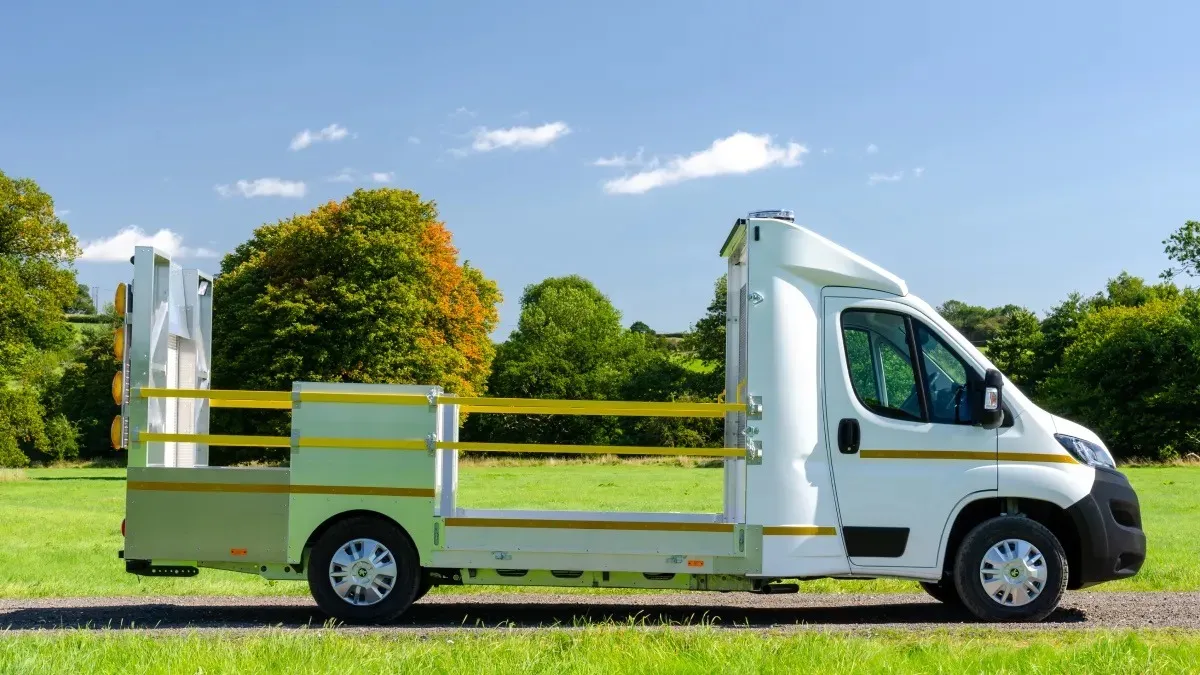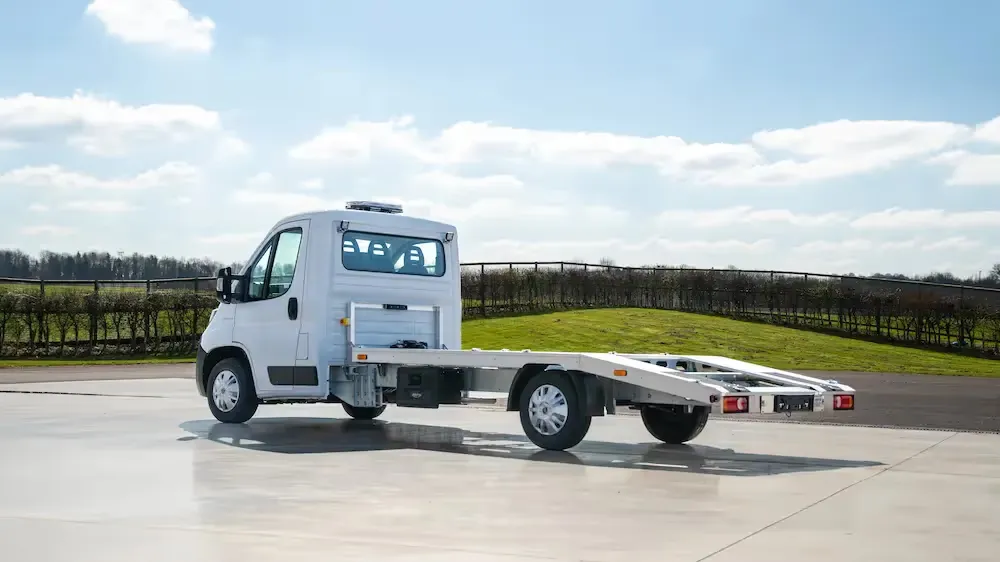Optimising Fuel Efficiency in Your Commercial Vehicle Fleet
May 23, 2025

For any business running a fleet of commercial vehicles, you'll know that fuel costs can really add up. And with fuel prices doing their own thing, it can have a big impact on how profitable you are. That's why looking at ways to be more fuel-efficient isn't just about being kinder to the planet – it's also a really smart way to manage your finances.
Putting good strategies in place to use less fuel can lead to some pretty significant savings, help you shrink your carbon footprint, and make your whole operation more sustainable in the long run. This guide takes a look at some practical ideas and good habits that fleet managers can use to get the most miles out of every drop of fuel across their commercial vehicle operations.
Understanding the Factors Influencing Fuel Consumption
Several factors contribute to the fuel consumption of commercial vehicles. These include vehicle specifications, driving habits, route planning, vehicle maintenance, and payload management. Fuel efficiency requires addressing each of these areas. By understanding how these factors interact, fleet managers can develop targeted strategies to minimise fuel usage and maximise mileage.
The vehicle’s design and build play a vital role. Aerodynamics, engine type and size, transmission, and tyre selection all influence how much fuel a vehicle consumes.
Driving habits are also a major determinant. Aggressive acceleration, hard braking, and excessive idling can significantly increase fuel consumption. Route planning affects mileage and can lead to unnecessary fuel burn if inefficient routes are taken or congestion is frequently encountered.
Proper vehicle maintenance ensures that engines and other components operate optimally, while appropriate payload management prevents overloading, which strains the engine and increases fuel use.
Implementing Driver Training Programmes
Driver behaviour has a profound impact on fuel efficiency. Implementing comprehensive driver training programmes that focus on fuel-efficient driving techniques can yield substantial savings. These programmes should educate drivers on smooth acceleration and deceleration, maintaining consistent speeds, anticipating traffic flow to avoid unnecessary braking, and minimising idling.
Techniques such as progressive gear shifting, where drivers move through gears smoothly and efficiently, and maintaining optimal engine revs can significantly improve fuel economy. Training should also cover the correct use of auxiliary systems, such as air conditioning and heating, as their overuse can increase fuel consumption. Regular refresher courses can help to reinforce these good driving habits and ensure that drivers remain mindful of fuel efficiency.
Optimising Route Planning and Scheduling
Efficient route planning and scheduling can significantly reduce the distance travelled and the time spent in traffic, both of which contribute to fuel consumption. Utilising route optimisation software can help to identify the most efficient routes, and the amount that can be saved over a year is a lot.
Consolidating deliveries and collections can also minimise unnecessary mileage. Planning routes to avoid peak congestion times can reduce idling and stop-start driving, both of which are detrimental to fuel economy. Real-time traffic updates and dynamic rerouting capabilities can further enhance efficiency by allowing drivers to avoid unexpected delays.
Maintaining Vehicles to Peak Performance
Regular and thorough vehicle maintenance is essential for ensuring optimal fuel efficiency. A poorly maintained vehicle can experience increased friction, reduced engine performance, and higher fuel consumption. Adhering to the manufacturer's recommended maintenance schedule is crucial.
Key maintenance tasks that impact fuel efficiency include regular oil and filter changes, ensuring proper tyre inflation, maintaining clean air filters, and addressing any engine issues promptly. Properly inflated tyres reduce rolling resistance, leading to improved fuel economy. Clean air filters allow the engine to breathe more easily, improving combustion efficiency. Regular engine tune-ups and addressing any mechanical problems can ensure that the engine is running at its peak performance.
Managing Payload and Aerodynamics
Overloading vehicles not only poses safety risks but also significantly increases fuel consumption. Adhering to vehicle weight limits is essential for both fuel efficiency and legal compliance. Distributing the payload evenly can also improve stability and reduce strain on the engine.
Aerodynamics also plays a role, particularly at higher speeds. For vehicles that travel long distances on motorways, considering aerodynamic aids such as roof spoilers and side skirts can help to reduce drag and improve fuel economy. Ensuring that loads are properly secured and do not create unnecessary wind resistance is another important consideration.
Utilising Fuel Management Systems and Telematics
Implementing fuel management systems and telematics solutions can provide valuable insights into fuel consumption patterns and driver behaviour. These systems can track fuel usage, identify instances of excessive idling or harsh driving, and monitor vehicle performance in real time.
The data collected by these systems can be used to identify areas for improvement and to provide targeted feedback to drivers. Telematics can also assist with route optimisation and vehicle tracking, contributing to overall fleet efficiency and reduced fuel costs. Regular analysis of the data provided by these systems is essential for identifying trends and implementing effective strategies.
Exploring Alternative Fuels and Technologies
While not always immediately feasible for all fleets, exploring alternative fuels and technologies can offer long-term solutions for reducing fuel consumption and emissions.
Electric vehicles, for example, produce zero tailpipe emissions and can significantly reduce fuel costs, although factors such as range and charging infrastructure need to be considered.
Hybrid vehicles can offer a transitional solution, combining the benefits of electric power with the range of traditional combustion engines. Biofuels and other alternative fuels may also present opportunities for reducing reliance on traditional fossil fuels. Keeping on top of developments in these areas can help fleet managers to make informed decisions about future vehicle acquisitions.
Fostering a Culture of Fuel Efficiency
Achieving sustained fuel efficiency requires fostering a culture of awareness and responsibility among all stakeholders, including drivers, dispatchers, and maintenance personnel. Regular communication, training, and recognition of fuel-efficient practices can help to embed this mindset within the organisation.
Setting fuel efficiency targets and tracking progress can also motivate drivers and other employees to actively contribute to reducing fuel consumption. Sharing data on fuel savings and the environmental benefits of efficient practices can further reinforce this culture.
Continuous Monitoring and Improvement
Optimising fuel efficiency is an ongoing process that requires continuous monitoring and improvement. Regularly reviewing fuel consumption data, tracking the effectiveness of implemented strategies, and adapting approaches as needed are essential for achieving sustained results.
Staying informed about new technologies, best practices, and industry developments is also important. Engaging with other fleet operators and participating in industry forums can provide valuable insights and opportunities for learning.
The pursuit of fuel efficiency is a journey of continuous refinement and adaptation. Reach out to us to learn more about our innovative and bespoke commercial vehicle ranges including electric fleets today.
You Might Also Be Interested In
Get In Touch With A Product Specialist Today
Here at AKFS our team of professionals are ready to answer any queries you may have. Get in touch or download a brochure to find out more today.



.webp)


